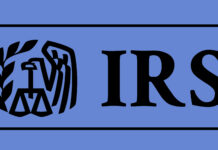On July 4, 2013, we will celebrate the 237th anniversary of the declaration of American independence.
Delegates from the 13 colonies who were attending the Second Continental Congress in Philadelphia had convened, in closed session, on July 2, 1776.
They discussed and voted to approve the resolution of independence that Richard Henry Lee of Virginia had proposed a month earlier. Two days later, on July 4, Congress turned its attention to debating, revising and finally approving a formal declaration of independence from British rule.
The document had been drafted by a committee of five with Thomas Jefferson as its principal author.
This revolutionary concept of freedom from tyranny was conceived in Virginia by those who had the most to lose–wealthy landowners such as Thomas Jefferson, George Washington, James Madison, and Richard Henry Lee among others.
They joined forces with the formidable minds of northerners such as John Adams, Benjamin Franklin, and Alexander Hamilton.
Together with others of wealth and privilege they convened in Philadelphia at what is now known as Independence Hall.
It was there that the dream took its final shape in the unprecedented assertion that all mankind had the right to life, liberty, and the pursuit of happiness.
It is a dream that many of us take for granted even as many more come to the shores of this great country to seek it.
Yearly celebrations have taken place since 1777, the year of the first recorded July celebration. In Bristol, Rhode Island, 13 gunshots were fired in salute in the morning and afternoon.
And in that same year in Philadelphia the nations’ first birthday was celebrated with an official dinner for the Continental Congress, toasts, 13-gun salutes, speeches, prayers, music, parades, troop reviews, and fireworks.
Two signers of the Declaration of Independence, John Adams and Thomas Jefferson, serve later as Presidents of the United States, and in a remarkable coincidence they died on the same day: July 4, 1826, which was the 50th anniversary of the Declaration.
Although not a signer of the Declaration of Independence, another Founding Father, James Monroe, died on July 4, 1831, thus becoming the third president in U.S. history who died on this memorable day.
On the whole, although our founding fathers risked their reputations, their fortunes, and their very lives, they ended their years peacefully.
But many other Americans through the ages have signed their names to the original “declaration of freedom for all” with their own blood and, mostly, on foreign soil protecting the freedom of others as well as their fellow citizens.
So, on this Fourth of July let us celebrate with fireworks and cookouts and family visits.
But let us remember, too, that freedom is never free. And let us specially remember those who risked all so that each one of us might pursue our independent vision of happiness.
On the 50th anniversary of the Declaration of Independence and hours before he passed away, Founding Father and second U.S. President John Adams offered a two-word toast: “Independence Forever!”
Two centuries, one score and seventeen years later, it still remains so.







